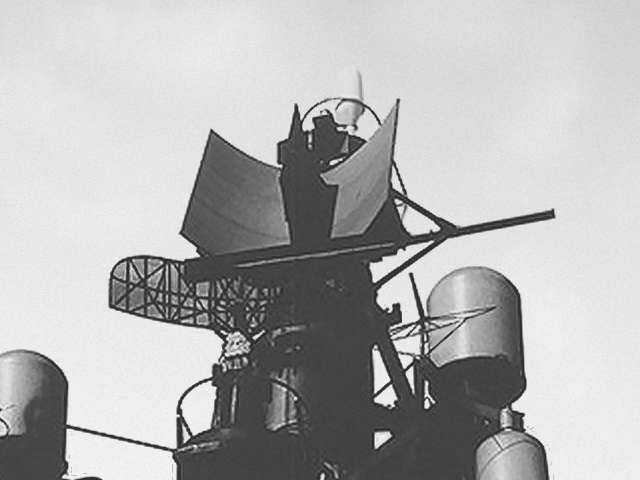AN/SPS-39
Description of the radar set, tactical-technical characteristics

Figure 1: AN/SPS-39 radar aboard the U.S. Navy USS Atlanta, 1964.
| Specifications | |
|---|---|
| frequency: | 2 910 … 3 100 MHz
( E/F-Band) |
| pulse repetition time (PRT): | |
| pulse repetition frequency (PRF): | 1 850 Hz or 925 Hz |
| pulsewidth (τ): | 2 or 4 µs |
| receive time: | |
| dead time: | |
| peak power: | 1 MW |
| average power: | |
| instrumented range: | 100 or 160 NM (≙ 185 or 296 km) |
| range resolution: | |
| accuracy: | |
| beamwidth: | 1.1° × 2.25° |
| hits per scan: | |
| antenna rotation: | 6 or 15 rpm |
| MTBCF: | |
| MTTR: | |
AN/SPS-39
The AN/SPS-39 was an E/F-band shipborne 3D air search radar used a parabolic-cylinder reflector antenna fed by a line source to produce the change in phase with frequency necessary to scan its beam electronically in elevation.
The first prototype was presented in January 1960. Upgraded with a planar array and an electronic pitch-roll stabilization instead of the mechanical stabilization of the turntable, this radar evolved into the AN/SPS-52.

